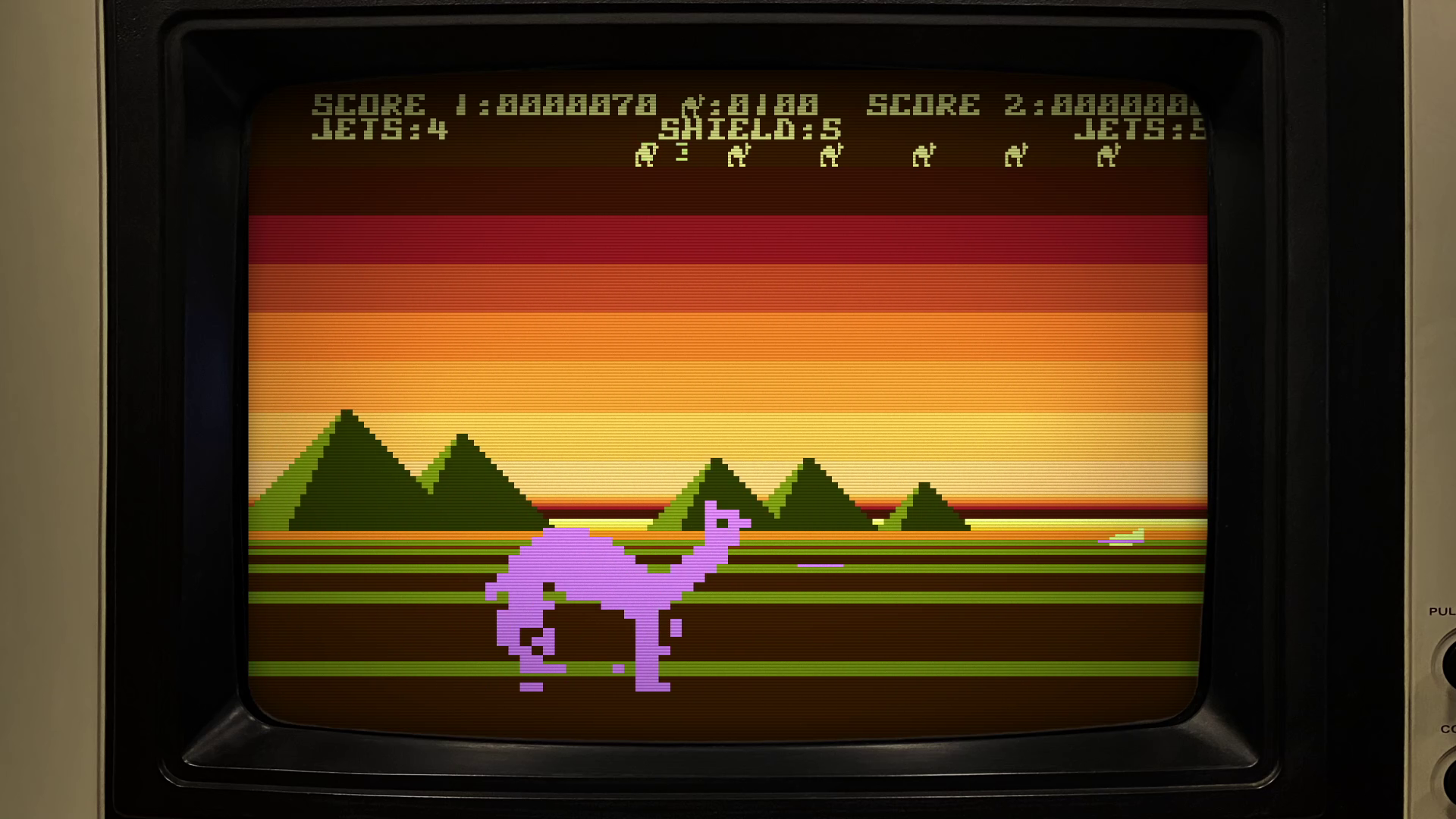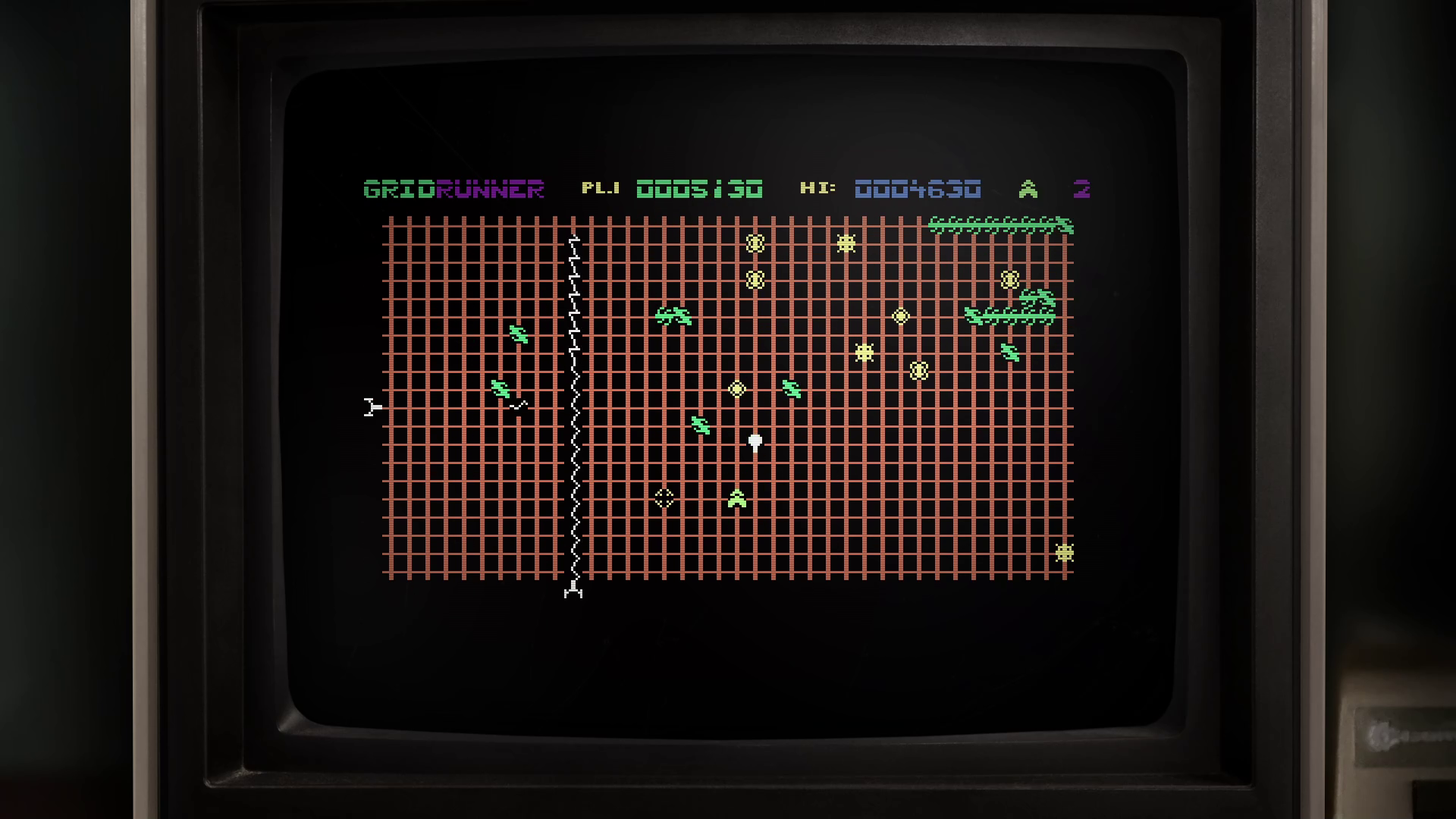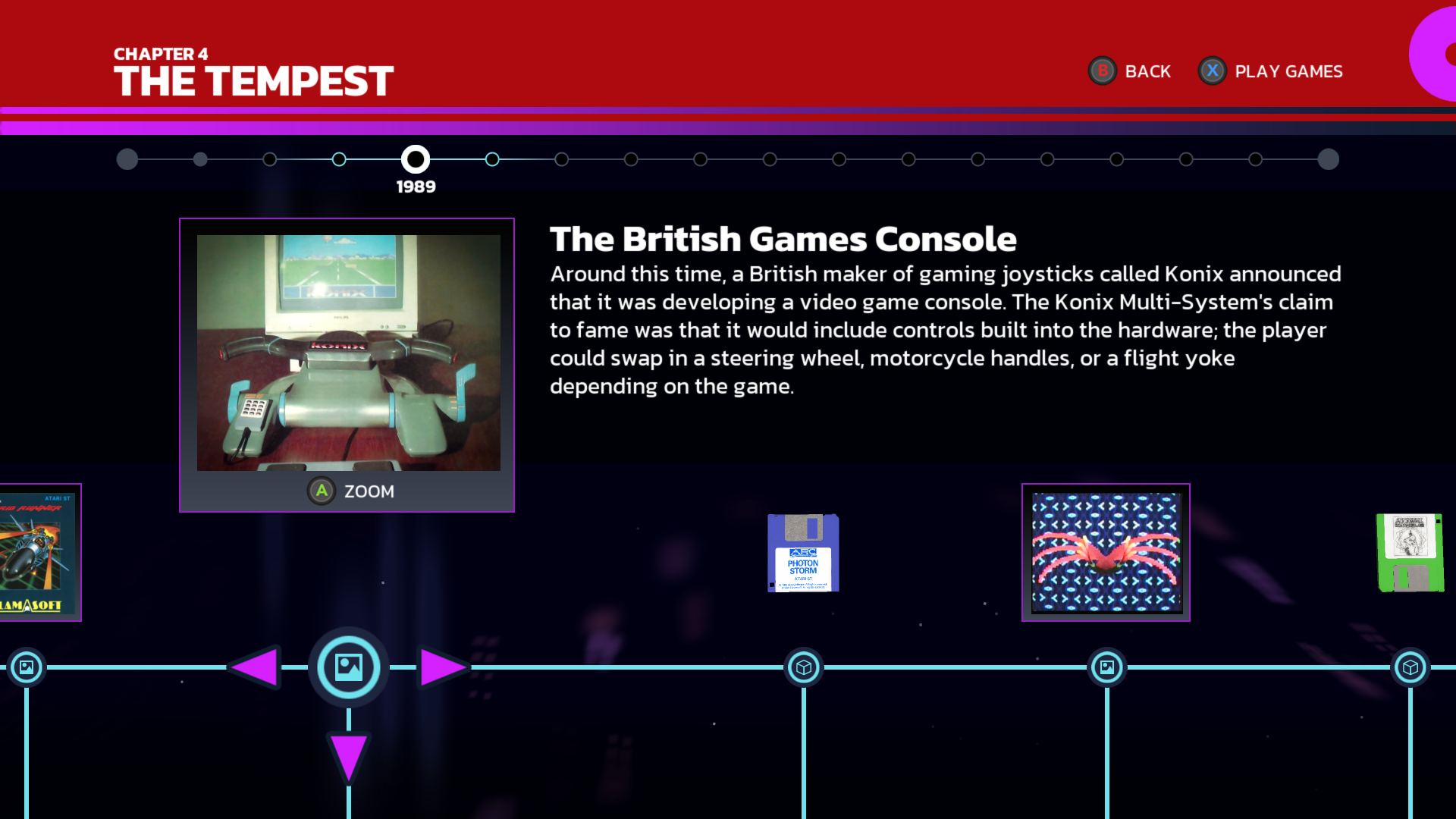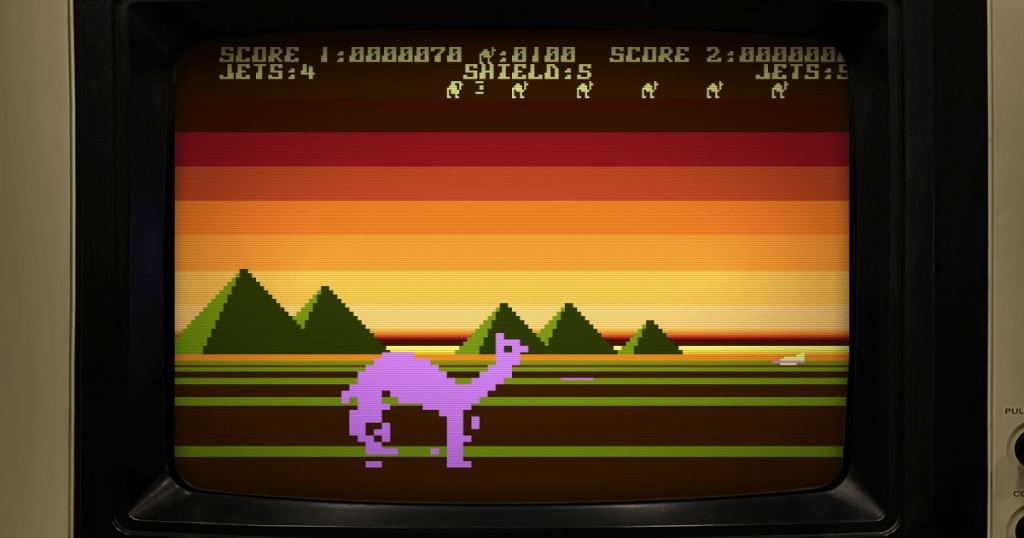The Visionary Jeff Minter: A Gaming Legend’s Prophetic Journey
Llamasoft’s Eclectic Legacy
In the annals of gaming history, Jeff Minter’s name resonates with those who grew up in the 1980s and mid-90s. As the mastermind behind Llamasoft, one of the industry’s most unconventional studios, Minter’s creations like Gridrunner, Revenge of the Mutant Camels, and the magnum opus Tempest 2000 cemented his status as gaming royalty. Despite his unwavering dedication to crafting unique experiences, Minter’s prominence has waned in the face of an increasingly commercialized industry he has long opposed.
Preserving a Legacy: Llamasoft: The Jeff Minter Story
Digital Eclipse’s latest interactive documentary, part of their Gold Master Series, pays homage to Minter’s groundbreaking work. Following in the footsteps of last year’s The Making of Karateka, this project not only preserves Minter’s classic games but also provides valuable context through a wealth of archival material. The result is a must-own package for anyone passionate about video game history, offering a poignant commentary on the industry’s evolution towards commercialization.
A Curated Collection of Oddities

Llamasoft: The Jeff Minter Story is a treasure trove for retro gaming enthusiasts, featuring 42 Llamasoft titles released between 1981 and 1994, as well as Digital Eclipse’s modern remake of Gridrunner. This meticulously curated collection showcases Minter’s creative evolution, from early recreations of classics like Centipede to his signature blend of established game mechanics, Monty Python-inspired absurdity, psychedelic art, and animal motifs.
Innovation and Iteration: The Path to Tempest 2000

Playing through the collection chronologically reveals the importance of innovation and iteration in Minter’s work. From the wild arcade game Revenge of the Mutant Camels to the bafflingly bizarre Mama Llama and the fantastic Llamatron: 2112, each title builds upon its predecessors, culminating in the crown jewel, Tempest 2000. By challenging design conventions and reimagining player movement, Minter’s early works like Gridrunner and Laser Zone paved the way for this system-defining classic.
Archival Material: Contextualizing Minter’s Journey

The Llamasoft collection’s archival material, including photos, design documents, magazine clippings, and newsletters, provides crucial context to each game’s development. While the sheer number of titles means that some of Minter’s oddest projects receive less attention, his newsletters offer a fascinating glimpse into his creative process and the industry’s evolution.
A Prophetic Vision: The Perils of Commercialization
Throughout his writing, Minter presents a grim vision of the 1980s video game industry, warning of the dangers of unchecked commercialization. He laments the decline of specialized tech shops that championed high-quality, innovative games in favor of chain stores pushing popular, safe crowd-pleasers. Minter’s prophetic words ring true today, as the industry continues to grapple with the balance between artistic expression and commercial success.
Too many people are trying to make money out of games rather than trying to make good games.
Jeff Minter’s story, as told through Llamasoft: The Jeff Minter Story, serves as a poignant reminder of the importance of creativity, innovation, and staying true to one’s vision in the face of an ever-changing industry landscape. While the collection’s Atari-washed happy ending may obscure the harsh realities of today’s gaming world, it remains a vital testament to the enduring legacy of a true visionary.
Llamasoft: A Retrospective on Jeff Minter’s Uncompromising Vision
The Commercialization of Gaming
The whole scene has become really heavy and commercial. All those breadheads trying to make a million pounds and never mind the games. It’s disgusting.
These words, penned by Jeff Minter in his 1984 newsletter, Nature of the Beast, ring true even in the gaming landscape of 2024. Minter’s critique of the industry’s focus on marketability over originality and the rush to release unfinished products resonates with recent titles like Suicide Squad: Kill the Justice League and Skull and Bones. His prophetic words foretell a future where innovation takes a backseat to tried-and-true formulas, a far cry from the groundbreaking Tempest 2000.
Digital Eclipse’s Llamasoft Collection: A Curious Conclusion
Digital Eclipse’s retrospective on Minter’s career paints a vivid picture of a visionary pushed to the fringes of an industry increasingly hostile to unconventional ideas. However, the collection’s ending feels abrupt, celebrating Tempest 2000‘s success while glossing over Minter’s diminishing influence. The studio’s recent acquisition by Atari raises questions about the conclusion’s focus on the company’s history, particularly the Atari Jaguar, which is portrayed as a pivotal moment despite its commercial failure.

Atari’s Vested Interest and Potential Conflicts
Atari’s recent publishing of Llamasoft’s latest releases and its pending acquisition of Digital Eclipse raise concerns about potential conflicts of interest in future preservation efforts. The collection’s ending, which features Minter praising Atari circa 1995, feels like a teaser for another Atari console reproduction. While this may be a result of Digital Eclipse’s uncompromising storytelling, mirroring Minter’s own approach, it’s hard to ignore the possible influence of Atari’s involvement.
A Hopeful Portrait of an Uncompromising Artist
Despite these concerns, Llamasoft: The Jeff Minter Story can be appreciated as an optimistic portrayal of a visionary who continues to create unconventional art in the face of a commercialized industry. Minter’s well-documented disdain for criticism, as evidenced by his dispute with Zzap! magazine over a negative review of Mama Llama, suggests that he would likely dismiss such speculations. Perhaps the collection serves as a beacon of hope, reminding us that the video game industry hasn’t entirely lost its soul to commercialization.
is out now on PS4, PS5, Xbox One, Xbox Series X/S, Nintendo Switch, and PC.
Unleashing the Horde: Attack of the Mutant Camels
A Bizarre Twist on Classic Arcade Gameplay
In the realm of peculiar video game concepts, Attack of the Mutant Camels stands out as a true oddity. This arcade-style shooter, released in 1983 for the Atari 8-bit family and Commodore 64, takes players on a surreal journey through a world overrun by genetically modified dromedaries.
Defending Earth from Camel-Shaped Spaceships
Players assume the role of a lone defender tasked with protecting Earth from an invasion of extraterrestrial camels. These otherworldly creatures pilot camel-shaped spaceships, adding an extra layer of absurdity to the already bizarre premise. Armed with a trusty laser cannon, players must blast their way through waves of mutant camels while avoiding their deadly projectiles.
A Humorous Take on the Space Invaders Formula
Attack of the Mutant Camels draws inspiration from the classic arcade game Space Invaders, but with a decidedly humorous twist. Instead of battling rows of descending aliens, players face off against herds of mutated camels hell-bent on conquering Earth. The game’s quirky visuals and tongue-in-cheek humor set it apart from its more serious counterparts in the genre.
“Attack of the Mutant Camels is the most stupendously brilliant game I’ve ever seen. Llamas are one thing, but mutant camels from outer space? Jeff Minter is a mad genius!”
Experience the Madness for Yourself
If you’re ready to embark on a wild ride through a universe populated by mutant camels, look no further than Attack of the Mutant Camels. This cult classic is a testament to the creativity and humor that defined the early days of video gaming. So, grab your joystick, ready your laser cannon, and prepare to face the horde of intergalactic dromedaries in this unforgettable arcade adventure.

4 Comments
A fascinating glimpse into gaming’s past, packaged in a must-have collection for enthusiasts and historians alike
A trip down memory lane that every gamer should experience!
A nostalgic goldmine for retro gaming aficionados!
A digital treasure trove that belongs in every gamer’s library.